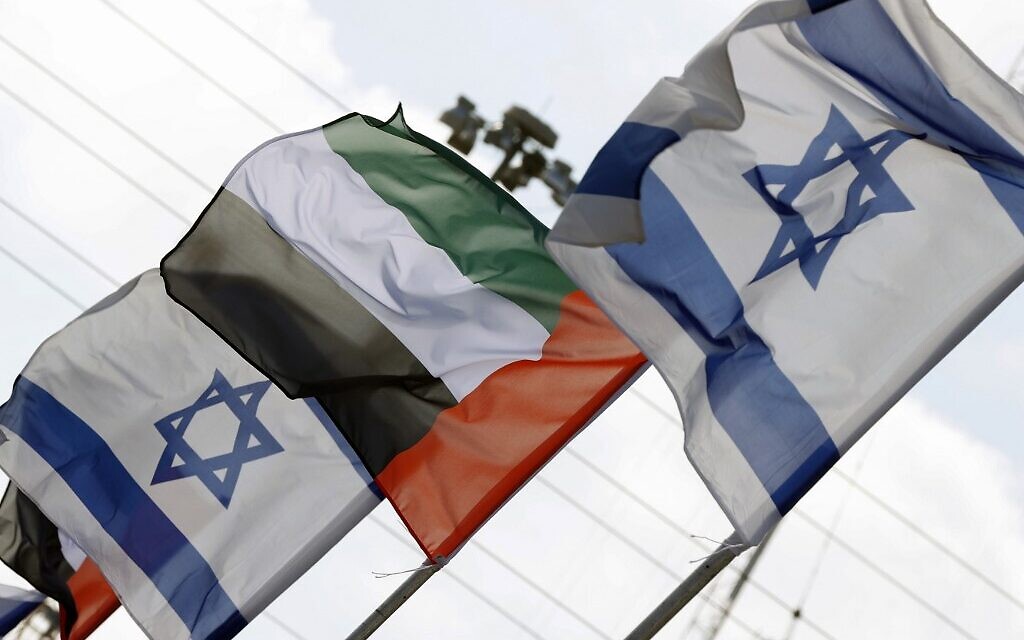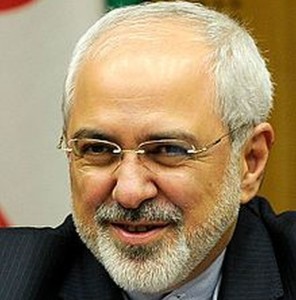Josh Hammer: Trump and Netanyahu Debunk the Failed Consensus
Nonetheless, this failed consensus persisted in the minds of Washington and Brussels simpletons. It reached an apex during the famously anti-Israel Obama administration, a coterie of quixotic liberal internationalists who preferred the hubris of trying to craft a Middle East anew — best embodied by 2015's harrowing nuclear accord with the Islamic Republic of Iran — over the prudence of addressing the Middle East as it actually is.Caroline Glick: Is the Palestinian veto alive or dead?
At long last, the U.S. has a president grounded in reality — who sees the world as it is, and not as academes and theorists would rather it be. The U.S. has a president who advances a hardened and realist foreign policy, grounded in a properly narrow conception of American nationalist interests, which properly rewards our allies as allies and punishes our enemies as enemies.
In the Middle East, this has translated into a famously pro-Israel, anti-Iran set of foreign policy initiatives. Trump has moved the U.S. embassy in Israel to Jerusalem, defended Israel to the hilt at the United Nations, unveiled the most pro-Israel U.S. peace plan initiative ever, withdrew the U.S. from Obama's terrible nuclear deal and punished the Islamic Republic with crippling sanctions as part of a broader "maximum pressure" campaign. As Israel's relations, following the nuclear deal with Shiite Iran, began to clandestinely thaw with the region's Sunni Gulf states, those Sunni Arab countries saw a strong, militarily emboldened Israel that had unambiguous American support. They saw a nation unequivocally committed to opposing a nuclear Iran, which the Sunni Arab states also fear, by any means necessary. They saw an Israel, with the imprimatur of Trump's peace plan, confident that it would not be browbeaten by supercilious Western elites into yielding yet more land concessions for an illusory peace with an implacable Palestinian foe.
The Israel-UAE peace agreement is Israel's first with an Arab country since the 1994 accord with the Hashemite Kingdom of Jordan. But it is the single most transformative peace agreement of them all. Israel has not given up any land. Nor, for that matter, has Israel been weakened in any way whatsoever.
The race is now on to see who will next follow the UAE and make peace with Israel: Bahrain, Oman and Morocco appear to be the leading contenders. This is the legacy of the Trump-Netanyahu doctrine: the latest proof of the age-old truth that peace comes when a historical foe is not weak but strong, and the evisceration of the elites' consensus that claimed the contrary.
Since Israel was established the Palestinian veto doomed all efforts to forge peace between the Arab world and the Jewish state.Arsen Ostrovsky: From Israel: Celebrating Peace With the UAE and Looking to the Future
The Palestinian veto rests on a toxic proposition that Israel's right to exist is contingent on its satisfaction of Palestinian claims against it. So long as the Palestinians say they are unappeased, Israel cannot expect the Arab world to either recognize or live in peace with it.
The very existence of the veto has ensured that the Palestinians will never be satisfied with any Israeli concession and will never agree to peaceful coexistence with the Jewish state. After all, their global and regional importance is a product of the veto. The Arabs and much of the rest of the world support the Palestinians because they wield the veto. As holders of the veto, the Palestinians are viewed as the key – or the key obstacle – to Middle East peace. If they give up or lose the veto, they will lose their position and power to enable or block peace and foment war and instability.
As for the Arab leaders, for generations, the Palestinian veto was the key to their own power and stability. It enabled them to deflect the attention of their peoples and of the governments of the world away from their corruption, extremism, and failure at home and abroad. It enabled them to scapegoat Israel and blame the Jewish state for the suffering and stagnation of their people.
Given its toxic power, abrogating the Palestinian veto has always been Israel's highest goal. And given its centrality for both the Palestinians and the wider Arab world, for most Israelis, it seemed like a dream so impossible that it wasn't even worth dreaming.
The peace treaties Israel signed with Egypt and Jordan were concluded while genuflecting to the Palestinian veto. Egyptian president Anwar Sadat signed Egypt's peace deal with Israel in 1979 only after he concluded a framework deal for Palestinian autonomy with then-Israeli Prime Minister Menachem Begin.
King Hussein of Jordan only agreed to sign a peace deal with the Israeli Prime Minister Yitzhak Rabin in 1994 after Rabin signed the Oslo peace deal with PLO chief Yasser Arafat on the White House lawn.
Since signing their peace treaties with Israel, Egypt and Jordan have continuously breached them by refusing to implement the clauses of their deals that require them to normalize their relations with Israel. Both use the Palestinian veto to justify their material breaches, which have reduced both "historic" treaties into little more than long-term ceasefires.
Though there are many differences between us, I believe there is far more that unites us.
We are both a proud people, with rich history and traditions. The fact that this agreement is called the "Abraham Accord" is a testament to this, because it also underscores our inextricable bond to the Prophet Abraham.
We are both forward-looking, understanding that the future belongs to those who innovate and look ahead—not those held back by past dogmas. Indeed, the UAE recently launched the Arab world's first mission to Mars, while Israel is universally acknowledged as the "start-up nation" for our technological prowess.
We are also both committed to advancing the cause of peace, both with our Palestinian neighbors and with the region more broadly. I believe the UAE and broader Gulf community can play a leading role in fostering this.
We both also have a shared strategic interest in the global fight against terror and extremism—most notably against the dark forces of Iran, Hezbollah and ISIS.
And finally, in a COVID-19-infused world, we have already started working together to find a cure.
Unlike Israel's peace agreements with Egypt and Jordan, I believe what singles out the proposal with the UAE is that it is all-encompassing and, crucially, builds on a bottom-up, people-to-people framework—not a "cold" approach imposed by political leadership.
This agreement is already paving the path for an endless array of new opportunities, ready to be seized, from direct travel and phone calls to trade in tech and collaboration in research and culture.
Peace is not made overnight. It requires effort, courage and mutual commitment.
It is my sincere hope that other countries in the Arab and Gulf world will follow the brave and principled leadership of Crown Prince Mohammed bin Zayed to embrace relations with the Jewish state and build the foundation for a better future for all the people of the Middle East.
In the Jewish tradition, it is common to end our High Holiday prayers with the saying, "next year in Jerusalem." May indeed it be "next year in Jerusalem" for the people of the UAE and the Gulf, as we look forward to welcoming them as cherished friends and welcome guests in our country!





 Tehran, August 21 - Diplomacy and politics are all about compromise. Both arts require flexibility, creative thinking, and efforts to craft win-win situations in which all parties to the issue can walk away with a compelling argument that they gain from the outcome. Iran therefore proposes the following: the Islamic Republic will depart from its long-held position that Israel has no right to exist, and will grant full recognition of the Jewish State, and in return, that Jewish State will concede to our eliminating it by violent means.
Tehran, August 21 - Diplomacy and politics are all about compromise. Both arts require flexibility, creative thinking, and efforts to craft win-win situations in which all parties to the issue can walk away with a compelling argument that they gain from the outcome. Iran therefore proposes the following: the Islamic Republic will depart from its long-held position that Israel has no right to exist, and will grant full recognition of the Jewish State, and in return, that Jewish State will concede to our eliminating it by violent means.

















.jpg)


.jpg)


